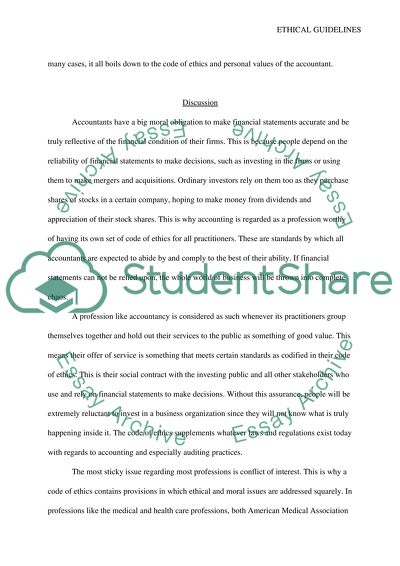Cite this document
(“Ethical guidelines of an accountant Essay Example | Topics and Well Written Essays - 1250 words”, n.d.)
Ethical guidelines of an accountant Essay Example | Topics and Well Written Essays - 1250 words. Retrieved from https://studentshare.org/finance-accounting/1565978-ethical-guidelines-of-an-accountant
Ethical guidelines of an accountant Essay Example | Topics and Well Written Essays - 1250 words. Retrieved from https://studentshare.org/finance-accounting/1565978-ethical-guidelines-of-an-accountant
(Ethical Guidelines of an Accountant Essay Example | Topics and Well Written Essays - 1250 Words)
Ethical Guidelines of an Accountant Essay Example | Topics and Well Written Essays - 1250 Words. https://studentshare.org/finance-accounting/1565978-ethical-guidelines-of-an-accountant.
Ethical Guidelines of an Accountant Essay Example | Topics and Well Written Essays - 1250 Words. https://studentshare.org/finance-accounting/1565978-ethical-guidelines-of-an-accountant.
“Ethical Guidelines of an Accountant Essay Example | Topics and Well Written Essays - 1250 Words”, n.d. https://studentshare.org/finance-accounting/1565978-ethical-guidelines-of-an-accountant.


